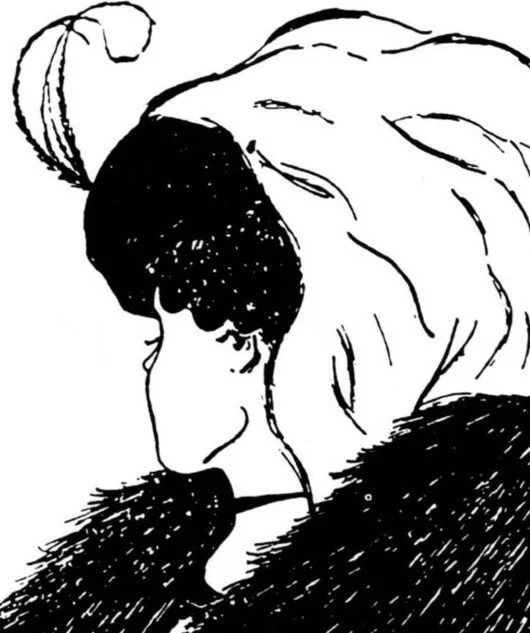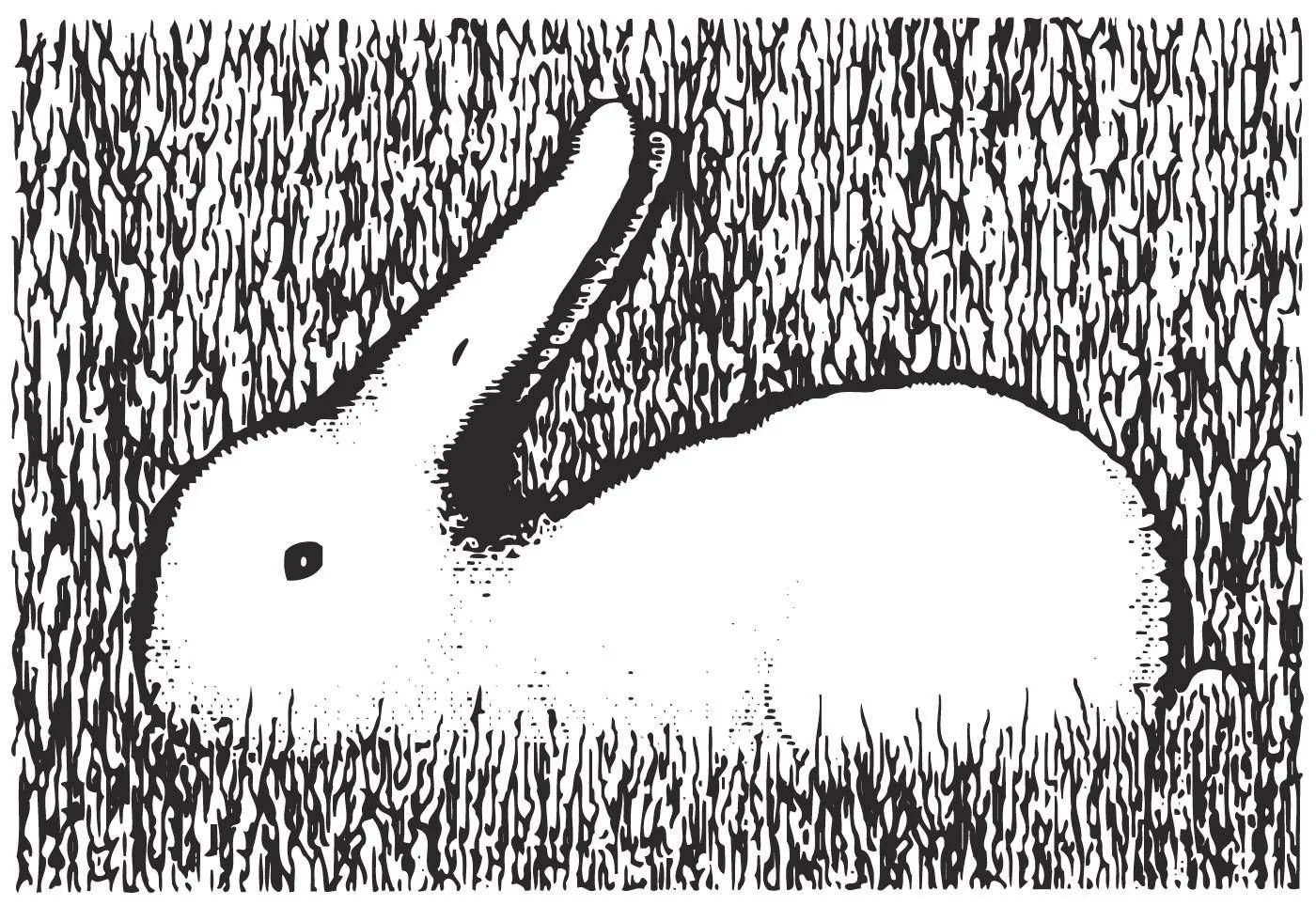“Faith According to Peanuts”
Third Sunday after Epiphany
RIC: Incarcerated
January 21, 2024
Matthew 25:31-46
Children’s Message:
Optical illusion—What do you see in this picture? (old lady/young lady) It’s actually a picture of both, isn’t it—an old lady and a young lady? But you have to know to look for both images, or you’ll only see one.
Today’s gospel lesson is like that. Jesus said that when we help people who need it, we’re helping him. But sometimes, all we see are people in need, and we don’t recognize Jesus. Part of worship and being the Church is to help us train our eyes and hearts to learn how to see Jesus in everybody. It’s not always easy.
So let’s do one more (bunny/duck).
Let’s pray. Dear God, help us learn how to see you in all people. Show us how to care for you by caring for others. Amen.
Message:
Pastor Fritz Wendt shares the story of a Peanuts comic strip that connects with today’s message. In it, Linus is watching television when his big sister Lucy walks up and says, “I don’t want to watch that program. I want to watch MY program.” Linus, who just wants to be left alone says, “Alright, I’ll go upstairs and listen to the radio.” But Lucy follows right behind him. When Linus turns on the radio, Lucy says, “I don’t want to listen to that program. I want to listen to MY program.”
Linus stares at her and sighs, “Fine, I’ll go to the next room and play a few records.” But Lucy is right behind him, yelling, “I don’t want to listen to those records. I want to listen to MY records.” Exasperated, Linus turns toward the door and announces, “OK, I’ll go outside and look at the stars for a while.” And again, Lucy follows after him, shouting, “I don’t want to look at those stars. I want to look at MY…” And realizing what she was about to say, she sighs loudly and walks away.
Wendt suggests that Linus and Lucy exemplify two typical approaches to faith: The Lucy faith, that is small and self-focused, that only wants what she wants for herself, and that is it; and The Linus faith, that is broad and mature and points to the stars that are not owned by anyone. A Lucy kind of faith sees the world as black and white, good and bad—a dualistic approach to life that strives to simplify and control all the elements of life. The Linus kind of faith acknowledges the mystery of the world and looks beyond what seems obvious to find the truth.
All this to say that our general approach to today’s reading tends to be from a dualistic viewpoint—a Lucy viewpoint. Clearly, Jesus has defined good and evil, and this is what it looks like: Good people serve the vulnerable, and bad people don’t. Therefore, good people will go to heaven, and bad people won’t.
But, just so that I don’t get caught in the trap of good and bad, I’ll redefine the terms in light of what I do. Therefore, good people serve the vulnerable…only if they deserve it (i.e., the working poor, the obvious victims, the innocent children). Everyone else need to take a little responsibility for themselves. And serving doesn’t necessarily mean going out of my way. My service is by giving money to this charity or that church. Therefore, I can feel confident defining myself as a sheep. I can feel confident that I’m on God’s right side and will go to heaven.
But that’s not what Jesus’ teaching is about at all. It’s all about how we see—how we see God, how we see ourselves, how we see others. When asked in an interview whether she believes in hell, Bishop Elizabeth Eaton said she does but that she believes it’s probably empty. She quoted John 12:32—"And I, when I am lifted up from the earth, will draw all people to myself.”
She was criticized for her statement by a number of conservative Christian leaders. But I wonder—why do we hold to the necessity of hell? Why do we feel so offended with the idea that if it does exist, it may be empty? I think it’s because we, as human beings, have a very strong lean toward judgment. Not justice, mind you. Judgment. People should get what they deserve—based on what we think is right.
Therefore, hell has to have people in it because there are people in this world much worse than me. There are people who have done things I can’t forgive. Therefore, if I can’t forgive, surely God can’t forgive either. We see the world as a system that essentially says that, despite God’s abundant grace, we have to take responsibility for our lives or we’ll get what’s coming to us.
Isn’t that what the criminal justice system is about? If you do something deemed bad, irresponsible, or hurtful to yourself or others, you need to be punished. It’s less (if at all) about helping people turn their lives around. Instead, we seem to think that the threat of punishment will curb people’s decisions to break the law. But let me ask those of you who have been caught speeding—do you still speed if you think you can get away with it?
My cousin is a retired state trooper out of Kansas, and I remember him telling the story about a guy he pulled over for speeding. The guy was so angry, he ripped his radar detector out of his truck and smashed it to the ground, all the while complaining about how the dumb thing didn’t work and didn’t warn him that a radar was in use. After the rant was over, my cousin calmly told him he didn’t use the radar but used a simple timer to catch him speeding.
No doubt, if faced with today’s reading, the man in the truck would see himself as one of the righteous sheep. Other law-breakers would fall under the goat category. Sadly, we miss the point of the whole parable when we place ourselves in the role of judge and decide who belongs where. Yet, we do it all the time.
Instead, the point of the parable is to challenge us to see God in the face of others. Which, as long as we’re judge and jury, we can’t do that. We would rather compare others to our own lives and use ourselves as the standard so that we always end up where we want, and we are free to put everyone else where we think they belong—where they deserve.
It is a function of Lucy faith—it’s all about me and what I want. When we resort to Lucy faith, we find it nearly impossible to see God’s face in the face of one we call ‘enemy.’ But when we can access Linus faith, we are ready to journey into the mystery of God’s justice—the kind of justice that offers grace and hope to those on whom this world has given up: those whom the world would rather lock up, harass, label, exclude, insult, hurt, and deport. And, truth be told, if we are honest with ourselves, we are ALL in the category of needing God’s grace. We are ALL unworthy of salvation, yet we are ALL redeemed and valued and loved by God. We are ALL the ‘least of these,’ in need of help from God and from one another.
That’s why this parable is good news—not just for some, but for all.
Pastor Tobi White
Our Saviour’s Lutheran Church
Lincoln, NE



